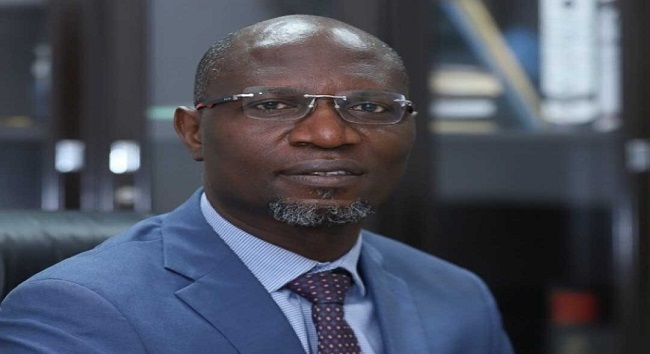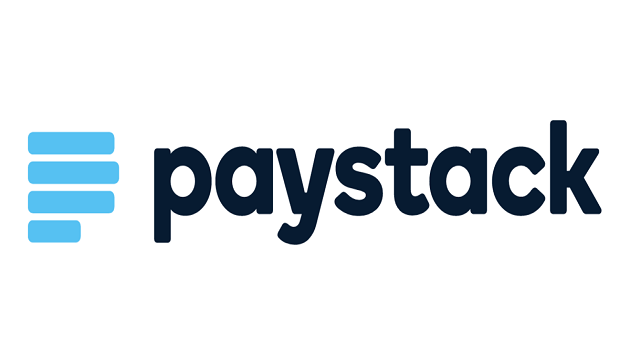E-Financial
JP Morgan Recommends UBA Shares over 45% Upside Potential

Investors that take position on UBA shares now have the chance of making as much as 45% return over the next 12 months writes US based Investment banking giant, JP Morgan, in its latest analysis of Nigerian banks.
“UBA offers an attractive 45% upside potential over 12 months, among the highest in CEEMEA banks” according to the JP Morgan report released October 2013.
CEEMEA is an acronym for Central and Eastern Europe, Middle East and Africa. It is used by investment analysts to refer to reports that cover economies or businesses in this region.
“We think UBA’s valuation, despite a strong rally since the beginning of the year, offers an opportunity to buy into probably the deepest valuation discount in CEEMEA banks at current levels” states the JP Morgan Report while explaining the rational for recommending UBA’s shares.
The report also notes that investors may be missing out on the opportunity presented by UBA shares despite improving fundamentals of the bank. “However, consensus is catching up fast – UBA has the best buy, or hold, or sell ratio on Bloomberg consensus.”
The JP Morgan report also explains that UBA benefits from significant balance sheet liquidity noting that the bank’s loan to deposit ratio of 37% as at half year 2013 was the lowest among CEEMEA banks covered by the investment bank.
JP Morgan however forecast that UBA’s loan to deposit ratio is “conservatively expected to rise gradually to 45% by 2016 year end.
JP Morgan notes that UBA’s loan to deposit ratio is “reflected in UBA’s market shares where it is second in Nigeria in deposits with 13% market share, but has lowest lending market share at 8% among the four biggest banks JP Morgan tracks in Nigeria.
UBA pan-African presence is also seen as strength in the bank’s operations. JP Morgan notes that UBA has the highest number of subsidiaries in Africa among the top-tier Nigerian banks with positions in 18 African countries outside Nigeria and potential to drive future revenues on rising intra-Africa trade.
“This pan-African presence and valuation discount increases the attractiveness of UBA as a potential take-out story, in our view, given our understanding on larger regional banks (e.g. South African banks) for pan-African franchises such as UBA’s.”
Notably, “UBA has the lowest mix of Commission on Turnover (COT) growth in its overall fee income mix when compared with peers. Excluding fee income, we see average Net Interest Income (NII) growth of 15% every year from 2013 to 2016” according to the JP Morgan report.
“UBA’s valuation is an opportunity to buy into what may be the most attractive risk-reward in CEEMEA banks; for a 33% valuation discount versus peers, we estimate UBA offers 23% 2014 year end premium on Return on Equity (ROE) and significantly higher dividend yield of 10% by 2014 year end”
JP Morgan expects that the Nigerian government’s reforms agenda in oil and gas, power, agriculture and infrastructure sectors will drive the future banking growth, the sector which UBA has recently been highly bullish on with new loan growth targeted at these sectors.
UBA only last week released its third quarter 2013 financial results which shows a significant 26.7% growth in loan portfolio, as the bank positions to take advantage of emerging opportunities in the power and oil and gas sectors of the Nigerian economy.
The nine-month results put the bank’s new loan portfolio position at N870.4 billion as at September 2013, representing a 26.7% increase on N687.4 billion loan portfolio for full year of 2012. “We increased our exposure to the power, upstream oil and gas and telecoms sectors of the economy” explained Phillips Oduoza, group managing director.
The bank also announced gross earnings of N188 billion, representing 12.5% increase from N167.1 billion in the same period of last year while interest income rose 18.8% to N133 billion from N112 billion.
There was a significant 28.5% increase in total comprehensive income for the period to N48.74billion, compared with N37.92billion in the same period of last year while the bank closed the first nine months of the year with a profit of N43.4billion.
E-Financial
SEC Hikes Minimum Capital Requirements for Market Operators After a Decade

The Securities and Exchange Commission (SEC) has revised the minimum capital applicable to all categories of regulated capital market entities after 10 years.

The minimum capital review, according to the SEC, is informed by the need to strengthen market resilience, enhance investor protection, align capital adequacy with the evolving risk profile of market activities, and ensure that regulated entities possess sufficient financial capacity to discharge their obligations in a sustainable manner.
“The revised Minimum Capital framework seeks to: enhance the financial soundness and operational resilience of market operators; align capital requirements with the scope, complexity, and risk exposure of regulated activities; promote market stability and systemic risk mitigation; and support innovation and orderly development of new market segments, including digital assets and commodities markets,” SEC said in a January 16 circular to market operators.
The SEC circular was sent to all entities regulated by the Commission, including but not limited to core and non-core capital market operators; market infrastructure institutions; capital market consultants; financial technology (FinTech) operators; Virtual Asset Service Providers (VASPs); and Commodity market intermediaries.
All affected entities are required to comply with the revised Minimum Capital Requirements on or before June 30, 2027, the circular said.
“Entities that fail to meet the prescribed requirements within the stipulated timeline shall be subject to appropriate regulatory sanctions, including suspension or withdrawal of registration, as may be determined by the Commission,” SEC said.
Tier-1 Portfolio Managers (Full Scope) involved in the management of Collective Investment Schemes (CIS) and Alternative Investment Funds (Private Equity, Venture Capital, Infrastructure Funds etc) above N20 billion Net Asset Value (NAV), or discretionary and Non-Discretionary Private Portfolio Management Services above N20 billion Assets under Management (AuM), or exposure to foreign instruments up to 40 percent of the NAV are now required to have a minimum capital of N5 billion as against N150 million.
“Any Fund and Portfolio Manager with NAV/AuM of more than N100billion should have a minimum of 10 percent of the NAV/AuM as capital,” SEC added.
For the Tier-2 fund/portfolio managers (Limited Scope) who are in the business of management of Collective Investment Schemes with limited pooled fund creation of not more than 10 times the required capital (N20 billion) on Net Asset Value (NAV), or discretionary and non-discretionary private portfolio management services of not more than N20 billion, or those exposure to foreign instruments of not more than 20 percent of the NAV, now require N2 billion as minimum capital as against low of N150 million.
Likewise, broker-dealers whose services include: client execution, proprietary trading, margin/securities lending and advisory services no longer require N300 million minimum capital to operate but N2 billion.
The SEC said the minimum capital review from 2015 low is in line with its mandate under the Investments and Securities Act 2025 to regulate and develop the Nigerian capital market.
Also, Tier 1 issuing houses who do non-interest finance services, advisory & arrangement services but no underwriting now require N2 billion as against N200 million; while Tier 2 –issuing houses with underwriting and offers a ‘one-stop-shop’ for issuers, provides underwriting services, and renders advisory and product development services require N7 billion minimum capital for this business as against N200 million.
Also, the minimum capital requirement for brokers (client execution only) has been jacked up from N200 million to N600 million, while that of dealers (proprietary trading only) has been moved from N100 million to N1 billion.
Broker-Dealers’ (client execution, proprietary trading, margin/securities lending and advisory services) has been raised from N300 million to N2 billion, while Sub-Brokers’ (Digital) from N10million to N100million; Sub-Broker (Corporate) has been increased from N10million to N50 million. Also, sub-brokers’ (Individual) now need N10 million minimum capital for the business as against N2 million while inter-dealer brokers require N2 billion as against N50 million.
E-Financial
SEC Partners Police in Nationwide Crackdown on Ponzi Schemes, Crypto Frauds

Securities and Exchange Commission (SEC) and the Nigeria Police Force have forged an alliance against illegal scheme operators, investment frauds, and cryptocurrency frauds in a bid to protect the hard-earned savings and the financial dreams of the Nigerian people.

Dr Emomotimi Agama, director-general of the SEC, stated this during a meeting with Kayode Egbetokun, Inspector General of Police, held in Abuja.
Agama said the SEC, as the sentinel at the gate of Nigeria’s formal capital markets, had the mandate to protect investors, maintain fair, efficient, and transparent markets, and promote the growth of a vibrant economy built on trust, which is done by setting rules, licensing operators and market surveillance.
He, however, stated that the Commission faced adversaries who operate in the shadows, outside regulated gates by exploiting the trust of people and promising miraculous returns such as 200 per cent in 30 days.
“Currently, there is a gap, a seam between identification and enforcement that these scammers exploit. Today, we aim to close that gap permanently. Therefore, we propose a robust, institutionalised collaboration with the following pillars: Joint Intelligence and Operations Task Force: Capacity Building and Knowledge Transfer; Streamlined Processes for Enforcement and National Public Awareness Campaign,” he stated.
The SEC DG advocated, “the establishment of a dedicated SEC-NPF team that combines market intelligence, forensic accounting, and understanding of complex financial schemes with investigative and intelligence-gathering capabilities. This team will be the rapid-response unit to new frauds.”
Agama also sought the permission of the IGP to go into a Memorandum of Understanding with the Cyber Security Unit of the Police Force in a bid to ensure that cyberspace is safe for all Nigerians
In his response, the IGP Kayode Egbetokun assured the SEC team that the Nigerian police Force is ready to collaborate with the Commission, strengthen partnership in all the ways possible, and ensure that the Commission achieves its aims.
He said, “Your role in the Securities and Exchange Commission is very crucial to the Nigerian Economy, and with our supervision and support from the government, we will ensure economic recovery and growth. If the police unit in SEC is strengthened, it is going to make such an impact on your enforcement drive. What you said speaks so much to your determination to ensure effective drive in the Capital market, and when we can achieve effective enforcement, it comes with so many benefits.
Egbetokun also congratulated the Commission on the recent achievement of the N100 trillion market capitalisation mark, adding that it will aid economic growth and development.
E-Financial
Paystack Expands Beyond Payments into Banking

Nigerian fintech giant, Paystack has taken its boldest step yet beyond payments, acquiring Ladder Microfinance Bank. The fintech giant has quickly rebranded its new acquisition as Paystack Microfinance Bank (MFB) in a strategic shift that could reshape how African businesses access credit, deposits, and embedded financial services.

After nearly a decade building the backbone of online payments in Nigeria, the deal gives Paystack regulatory cover to hold deposits, lend directly to businesses and offer banking-as-a-service products.
More importantly, Paystack’s chief operating officer, Amandine Lobelle, highlighted that it allows the company to exert greater control over the trillions of naira that already flow through its platform every month, turning transaction data into a powerful engine for credit and treasury products.
“After 10 years of building payment infrastructure and going deep, we realised that businesses needed more than just getting paid to grow. We wanted to leverage the expertise that we have built over the last decade to continue to address some of the pain points that businesses have,” said Lobelle.
Paystack MFB will operate as a sister company to its payments business, initially focusing on working capital loans, merchant cash advances, overdrafts and term loans for small and medium-sized enterprises.
By using real-time payment data to underwrite loans, Paystack believes it can offer faster approvals and more accurate risk pricing than traditional lenders, directly tackling Nigeria’s estimated $32 billion small business financing gap.
For Paystack, founded in 2016 and acquired by Stripe in 2020, the move marks a strategic evolution from being just a payments processor to becoming a core part of the financial operating system for African businesses.
Today, Paystack supports more than 300,000 businesses across Nigeria, Ghana, and South Africa and has become one of Africa’s most trusted fintech infrastructure providers.
The banking licence is a game-changer as payments, once Paystack’s main growth engine, are increasingly commoditised across Africa. Lending, deposits and treasury services offer deeper margins, stickier relationships and long-term sustainability.
By layering banking services on top of payments, Paystack is betting that infrastructure depth will outperform flashy consumer scale.
However, the move also throws the Nigerian-born fintech giant into fierce competition with digital -first lenders and neobanks such as Moniepoint, Kuda, OPay and PalmPay, which already operate at massive scale. Still, Paystack’s strength lies in its merchant-first focus and developer-friendly APIs.

 E-Financial2 days ago
E-Financial2 days agoAngst as FG Demands 7.5 Percent VAT on Mobile Bank Transfers, USSD

 News2 days ago
News2 days agoMoniepoint Launches Second Cohort of DreamDevs Initiative to Double Down on Africa’s Tech Talent Pipeline

 E-Financial2 days ago
E-Financial2 days agoNGX lists 3.156bn UBA shares, boosting capital to N513Bn

 E-Financial2 days ago
E-Financial2 days agoThe Missing Pieces in Nigeria’s Banking Recapitalisation

 Telecom2 days ago
Telecom2 days agoGlo Unveils Immersive Gaming Experience, Travel Saga

 E-Business2 days ago
E-Business2 days agoHalf of Global Companies Build SOCs to Enhance Cybersecurity, with a Focus on Human Expertise

 General News2 days ago
General News2 days agoNITDA DG Reaffirms Nigeria–U.S. Partnership on Data Privacy, AI and Cybersecurity

 General News2 days ago
General News2 days agoParadigm Initiative Condemns the Internet Shutdown and Media Restrictions in Uganda Ahead of the 2026 General Election






















